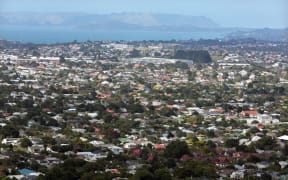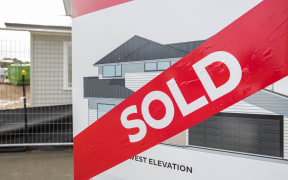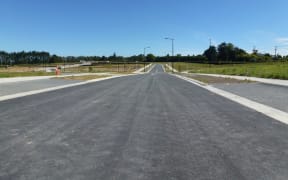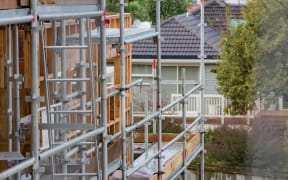Cooling property values may give first home buyers hope soon, when investor borrowing restrictions start to take affect.
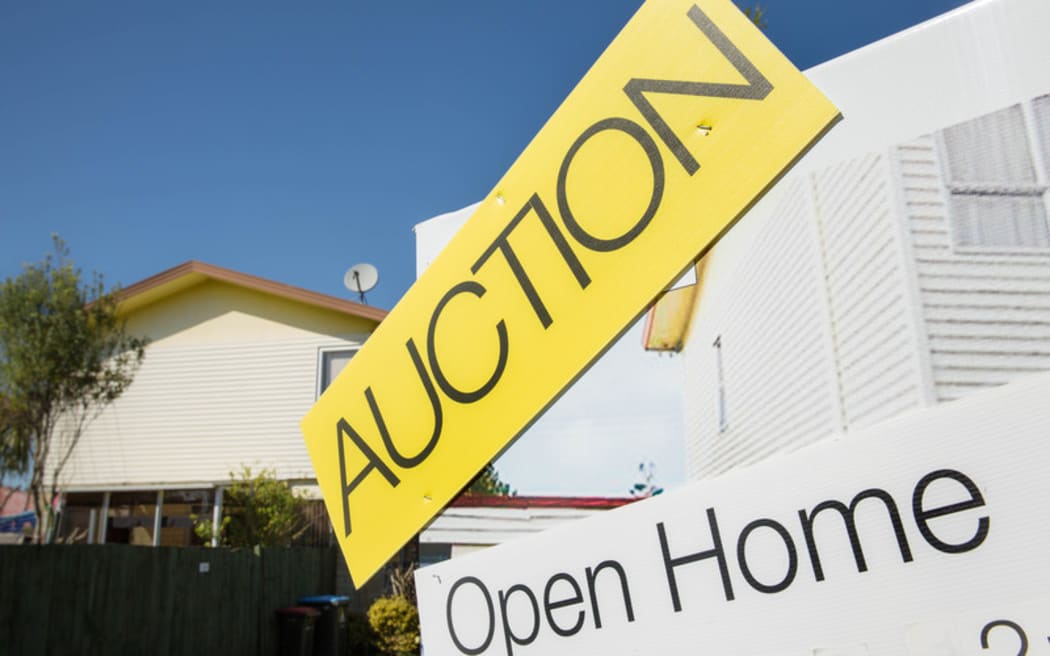
Slowing growth of house values mean it could be the time for buyers looking to enter the market. Photo: RNZ / Rebekah Parsons-King
The latest monthly QV House Price figures show the annual rate of growth nationally has slowed to 12.5 percent, putting the average value at just under $627,905.
The average Auckland house price is $1,047,179.
Figures released by Statistics New Zealand show home ownership has hit a near record low - with only 63.2 percent of people today living in their own home.
But the tide could be turning for frustrated buyers looking to enter the market.
QV spokesperson Andrea Rush said a trend of slowing house values can be seen in many of the main centres - including Auckland, Hamilton and Christchurch - and it was likely to continue.
The new Loan to Value (LVR) restrictions, which required a 40 percent deposit from investors, meant they were withdrawing, particularly in the Hawkes Bay, Ms Rush said.
But while there was change in the air, buyers still needed to be cautious, she said.
"We also have to remember that any slowdown will be balanced by the fact that the market's still being driven by those key drivers of strong net migration and relatively low interest rates, as well as a lack of supply compared to demand, particularly in the Auckland market."
Wellington and Tauranga have slowed slightly, but values in those regions are still rising faster than in Auckland.
While investors are disappearing from areas such as the Hawke's Bay, there is no evidence of Dunedin values slowing, Ms Rush said.
"Places like Dunedin. Places where the entry level price point is under $400,000.
"There's still been strong levels of activity and demand, as investors in those markets are not so affected by the new LVR limits requiring a 40 percent deposit."
Possible mortgage interest rate rises this year may further discourage investors from re-entering the market, she said.
But Auckland Property Investor Association president Andrew Bruce said the rise in interest rates may affect landlords and impact renters.
"While those interest rates have gone down, people have ended up having to take bigger and bigger and bigger mortgages to be able to get into the property market.
"What we've got now is, we're sort of at this bottom end of this interest rate curve. When these interest rates go up a little bit, it's certainly going to have an impact on people who have taken out bigger mortgages."
While the LVR restrictions were having an affect on investment and house prices, the problem was not investors, but supply and demand, Mr Bruce said.
"Why did we get into a situation where we have a 40,000 undersupply of houses?
"If we had a 40,000 oversupply of houses, yes there would still be these property market cycles but I'm pretty sure that this heat or this increase that we've had, wouldn't be as great as it has been right now with this massive undersupply."
The Reserve Bank is set to announce the official cash rate on the 9 February.

